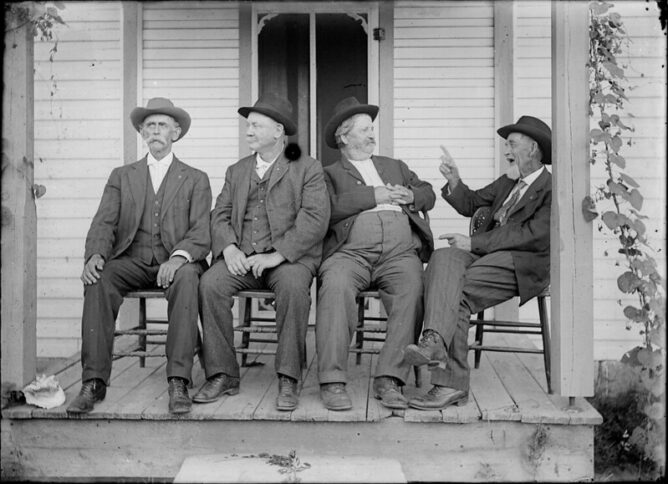All words are pegs to hang ideas on.
Henry Ward Beecher, Proverbs from Plymouth Pulpit (1887)
A few weeks ago, Meredith Farkas posted on X about her experience as a blogger in 2024. I understand the frustration. Once upon a time, there was a robust community of LIS bloggers. In the years between 2005-2012 in particular, I had to regularly cull my Google Reader (rip) because I would subscribe to more RSS feeds than I had time to reasonably consume.
I recently when looking for some of those sites and was pleasantly surprised to find that Everybody’s Libraries appears to still going strong. And others have emerged, like Ryan P. Randall. Like Meredith said, most seem to have disappeared or gone silent: Librarian in Black, Pegasus Librarian, Academic Librarian, The Waki Librarian, Pop Goes the Library.
Of course, it wasn’t just the LIS world. Blogging in any field was at its height in the late aughts. There was a deep and thoughtful conversation happening then that feels lost now, owing in part to the move away from long-form text. The recent rise in email newsletters seems to be bringing this back (have you seen the comment threads on an Anne Helen Petersen post recently!?), but what made it so special then was that the conversations seemed to be happening on people’s own domains, rather than walled communities like Substack’s Notes. Even if those domains were a free Blogger site, when you visited someone’s page, it felt like walking up to their front porch.
I know. “Back in my day.” But what if…
What would it take to bring blogging back, at least in small pockets? Intentionality. Back then, setting up a full WordPress or Typepad site was the simplest way to participate in the conversation. The conversation moved slower, but that’s all we had. Social media drastically lowered the barrier to entry and accelerated the speed, but that came with a cost: the loss of the personal. Yet with a little bit of coordination and purpose, a dedicated group of LIS writers could bring back the blogosphere.
Here’s how it might work:
- Gather a group of writers. Each would need to have their own website. The site would need to have commenting and trackbacks functions built in. We can work out the technical bits later (though, I would look to IndieWeb): the key factor is having a space for conversation.
- Depending on the size of the group, each writer pledges to write 1-2 posts per month/quarter/year. I think the ideal frequency would be for the group to put out at least 1 post per week. You could go even further and select monthly themes, but it’s probably best to let folks write on what they are most knowledgeable or passionate about.
- In addition to regularly posting on their own site, each writer should plan to post at least 1 long-form response post to someone else in the group. This could be planned in advance or not, but the key here is to create [hyper]links among the group.
- Each writer should plan to comment on every other writers’ post.
Of course, what I’m describing is what we used to call a “blogring.” This happened organically among communities of writers (we even had site badges for it!). And since it happened on our own domains, it still felt like a community of individuals and less homogeneous than the UX experience of today’s social media.
I know. “Back in my day.” But what if some things once forgotten could return. Would we welcome them?
What I’m reading
💻🌿💡 We Need to Rewild the Internet by Maria Farrell and Robin Berjon. “Rewilding the internet is more than a metaphor. It’s a framework and plan. It gives us fresh eyes for the wicked problem of extraction and control, and new means and allies to fix it. It recognizes that ending internet monopolies isn’t just an intellectual problem. It’s an emotional one.”
🤪🔗📄 The internet used to be fun. I stumbled across this page after writing the section above, thankfully, because this is a rabbit hole I plan to dive into for a few days! “I’ve been meaning to write some kind of Important Thinkpiece™ on the glory days of the early internet, but every time I sit down to do it, I find another, better piece that someone else has already written.”
⛴️🪝🌏 The invisible seafaring industry that keeps the internet afloat. I’ve seen this article shared repeatedly over the past week. It’s a #LongRead but worth the entire ride. So much of our infrastructure relies on an aging feet and diminishing workforce.
Links to the past
- 1 year ago: I was reminding myself that projects or initiatives carried on the backs of individuals is not sustainable. Moreover, it’s bad leadership.
- 3 years ago: Reading about writing, parenting, and wisdom.
- 10 years ago: They could see into my soul.
photo credit: Missouri State Archives on Flickr

I use Feedly to replace Google Reader so it’s still easy to find blog posts. I wish more people would re-adopt tools like this. We are all worse off if social media algorithms are the only point of discovery.
I couldn’t agree more, Colleen! I’ve started using Reeder on my Mac desktop. I try to start there each day when I’m going through my feeds before jumping over to social media.